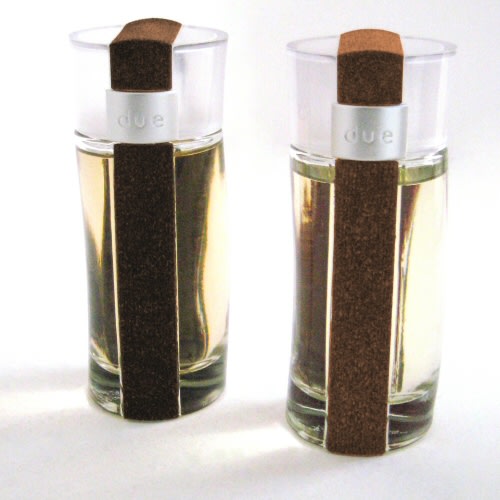 SABIC Innovative Plastics’ new bio-based composites give customers greatly expanded options for more impactful sustainable products.
SABIC Innovative Plastics’ new bio-based composites give customers greatly expanded options for more impactful sustainable products.SABIC Innovative Plastics is once again driving forward the development of eco-progressive materials as the race to replace finite resources, like petroleum with more impactful eco technologies, continues to accelerate. In its latest move, the company is helping customers create new sustainable solutions by delivering a first: two products in a new line of LNP Thermocomp specialty compounds that use curauá fiber and wood flour natural reinforcements. The new bio-based materials are being launched here today at NPE 2009 in SABIC’s booth W123011 and underscore SABIC Innovative Plastics’ commitment to a cleaner and healthier environment. Simultaneously the new materials are showcasing how the company is also giving customers greater options to create next-generation sustainable solutions to differentiate their products, grow current markets, expand into new sustainable market and application areas, and increase overall productivity and profitability.
- Our new LNP Thermocomp composites offer the combination of eco-progressiveness and outstanding high-performance properties - said Robert McKay, program manager for sustainable products, SABIC Innovative Plastics. - No company can afford to ignore the increasing call for sustainable products. On the other hand, creating sustainable products simply for the sake of creating sustainable products makes no business sense. Our new LNP Thermocomp composites address both issues. By drawing on our global application technology resources we are replacing traditional glass fiber and mineral fillers with natural reinforcing materials, and, in the process, are giving customers advanced new solutions for exceptional performance in a broad array of important applications.

One of SABIC Innovative Plastics’ new materials is LNP Thermocomp PX07444 specialty compound, a polyamide (PA)-6 nylon that is reinforced with up to 20 percent curauá fiber. The curauá plant is a member of the bromeliad family and is cultivated in South America. The fibers extracted from its leaves have high mechanical strength. This new LNP Thermocomp grade - while not identical in properties to glass-reinforced PA-6 - can potentially be substituted for the glass-filled nylon in specific applications such as automotive interior components. It provides a strength-to-weight advantage with good surface aesthetics. Also, natural fibers such as curauá are not as abrasive as glass or mineral reinforcement, thus reducing wear and tear on molding equipment.
Pematec, the largest Latin American manufacturer of sun visors, based in Brazil, is currently using LNP Thermocomp PX07444 specialty compound to mold the frame and bracket for a new automotive sun visor application. The new SABIC Innovative Plastics product provides excellent surface aesthetics and mechanical properties. With the increasing use of plastics in the automotive industry – the average vehicle contains 250 lb of plastic, or 12 percent of its weight - sustainable options are clearly becoming more important.
Another new grade, LNP Thermocomp MX07442 specialty compound, is polypropylene (PP) reinforced with 30 percent wood flour. It is aimed at replacing wood because, in addition to having a similar appearance, it is more resistant to fungi and has better dimensional stability than natural wood. Compared to unfilled PP or 30 percent mineral-reinforced PP, this lower specific gravity compound has higher flexural strength with retained impact strength, thus providing a strength-to-weight advantage. It can be extruded and injection molded, and provides a colorable surface with the natural grain of wood.
Bio-based plastics have become an attractive choice for manufacturers that wish to appeal to eco-conscious consumers. By creating packaging using sustainable plastics, companies can enhance the environmental value of their products. For example, the containers for a perfume are molded from LNP Thermocomp MX07442 specialty compound, by the Brazilian branch of Rexam Beauty Packaging, a global leader in plastic cosmetic packaging products. The new LNP specialty compound meets the customer’s goal of incorporating natural components into the packaging as a complement to the all-natural ingredients in its products.
- There can be no doubt that sustainability is a top global priority now and for the future - McKay added. - This is especially the case at SABIC Innovative Plastics. As we have done with our iQ resin platform, Flexible Noryl resin, paint free automotive solutions, energy-saving Lexan sheet products, and now these new LNP Thermocomp composites, we will continue to raise the bar in the development of sustainable solutions for our customers worldwide.



